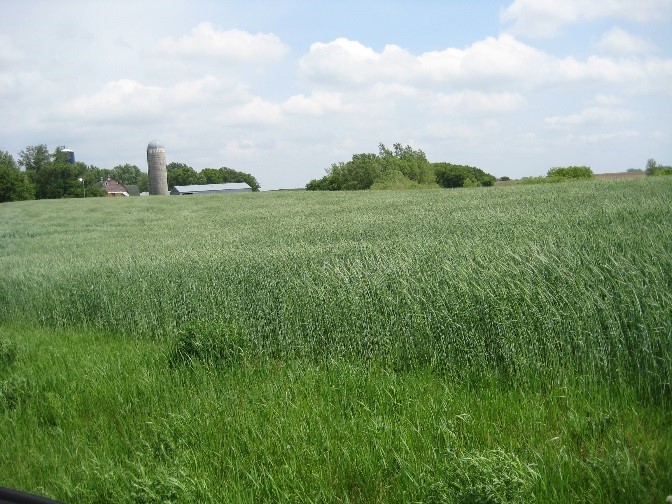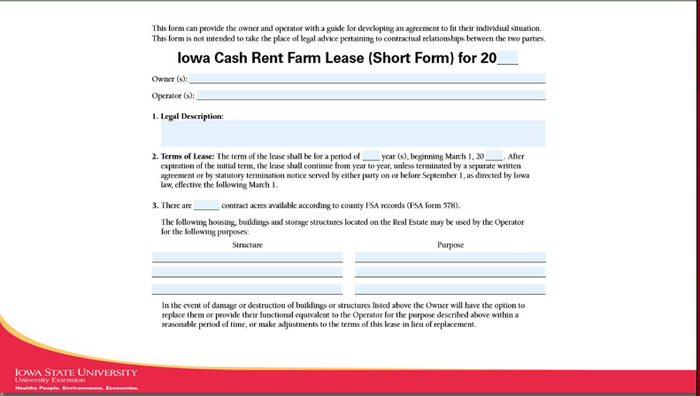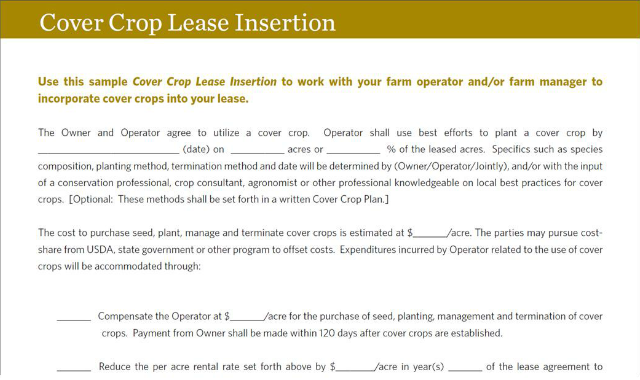
Cover crops are proving to be a valuable part of your agronomic plan. They reduce erosion, stopping the loss of valuable soil. Plus, they help reduce the phosphates and potash being flushed away during a heavy rain, meaning they can improve water quality.
Charles Brown, a farm management specialist at Iowa State University, says cover crops are not the only answer to water quality issues and soil erosion but they do have an impact on them. Brown says they are so important that the cost factor should be addressed in a rental lease between landlords and tenants.
The first thing to discuss is seeding costs. Brown says farmers must consider seed and application costs. He knows from personal experience this can range from $20-$40 per acre. He recommends shopping around for the best cover crop seed price. Secondly, he also recommends that both the landlord and tenant discuss the long-term effects of cover crops including how they can improve soil organic matter, the importance of water conservation, soil fertility and an overall greater land value because of the soil quality.
Brown says the addition of cover crops to a lease comes down to what can be agreed to by both parties. He recommends spelling it out in the agreement who pays for the cover crops. Some landlords reduce the rent and others help pay for a portion of the cover crops.
No matter what, Brown says, “Put it in the lease.”

If the agreement calls for shared costs, detail who pays for the seed and how the management costs are divided. If the rent is to be reduced, include all details in the lease.

(This lease can be found on The Nature Conservancy website.)
Brown cited other basics needed in a lease. One of the first things to consider is a conservation plan that may be on file at the FSA office. If the ground is not farmed according to the plan, there will be ramifications including no disaster payments or no subsidy for crop insurance.
The landlord should not only receive a copy of the production records, but also the soil test results and the fertilizer invoice. The yield report can come directly from the combine or crop insurance records. The soil test tells the landlord how the soil is being taken care of and current levels of nutrients and organic matter.
“The best thing for both parties is to put everything in writing, as this helps reduce arguments and misunderstandings,” he says. Plus, it protects both the landlord and tenant in case of death. The heirs know what is expected and when it is expected including rental payments.
Iowa Learning Farms Cover Crop Resources: Here you’ll find cover crop costs calculator, seeding rate calculator and much more.
Kansas State University Land and Leasing: Ag land leasing basics and cover crops.
Land Stewardship Project: Farm transitions: Valuing sustainable practices—cover crops.
Excel Spreadsheet-Rent Calculator, Ohio State University Extension
Ag Decision Maker, Iowa State University – (Click on Leasing under Whole Farm – There are several spreadsheet tools).
FarmDoc Fast Tools, University of Illinois – (Farmland Lease Analysis is one of the FAST tools that can be downloaded from the web site).
About the Author(s)
You May Also Like




